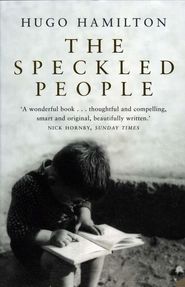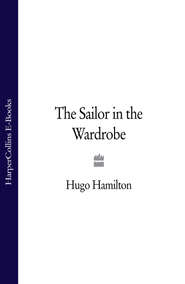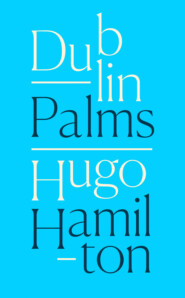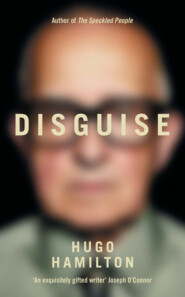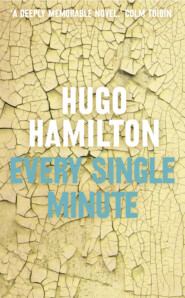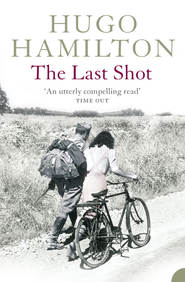По всем вопросам обращайтесь на: info@litportal.ru
(©) 2003-2024.
✖
Hand in the Fire
Автор
Год написания книги
2018
Настройки чтения
Размер шрифта
Высота строк
Поля
You could say that I did him a small favour. I found his mobile phone lying in the street and contacted his girlfriend. Her name was Helen and there was a picture of her on the phone, laughing into the camera. I could have read through all her messages, but I didn’t want to be intrusive. I contacted her and arranged for him to pick it up that same evening. It was nothing more than that. Anyone else would have done the same. I waited outside a late-night shop and saw him walking towards me with a big smile as though we already knew each other. He thanked me and stood there, refusing to let me go. Before I knew it, he was returning the favour, shaking hands and leading me away into a bar for a drink. He gave me his name, Kevin. I knew it already but he made it more official. Kevin Concannon. He told me that he was a lawyer and the phone was his life and he was glad it didn’t fall into the wrong hands.
He was curious about me and asked me what I was up to. When I told him that I was a carpenter looking for work, he said he would keep his ear to the ground. There was a chance he could set me up with a job, if I was interested. He stored my name and number on his phone. Vid Ćosić. He repeated the surname a number of times phonetically to make sure he got the pronunciation right. Ćosić. Like Choz-itch.
‘Where are you from, Vid?’
‘Belgrade,’ I said, just to keep it short.
I was trying to avoid all those long explanations about why I came here and what I left behind.
‘Serbia,’ I added. ‘Former Yugoslavia.’
What do you say when the country you grew up in can only be remembered for one thing? I told him that I left after a bad car accident and wanted to travel, see something different.
‘Fair enough,’ he said.
What does it matter where you come from? You could say it’s irrelevant. I wanted to forget about my own country and start again. I wanted to get a foothold here, get to know the place and the people. I already knew some of the most famous names, like James Joyce and George Best and Bono and Bobby Sands. I knew the most important landmarks, like the GPO, where the Easter Revolution took place, and Burgh Quay, where the bus to Galway leaves from. Right next to the immigration offices. I was beginning to understand the way things are done here, the way you have of saying ‘how’s the man?’ and ‘what’s the craic?’ I was starting to pick up the jokes, trying not to take everything so seriously. I was working on the accent, learning all the clichés – at the end of the day, nine times out of ten, only time will tell. I was eager not to be misunderstood or misled, so I stuck to the expressions that would give me least trouble. I was reluctant to abbreviate. I never allowed myself to use puns or play with people’s names. I tried to limit the amount of times I used words without meaning, such as ‘like’ or ‘you know’. I was cautious with terms like ‘mega’ and ‘sketchy’ and ‘leggin’ it’ and ‘literally glued to the television’. I didn’t trust myself saying things like ‘will you go away’ or ‘would you ever fuck off’ because I’m always afraid people might take it to heart. Besides, I can never pronounce the word ‘fuck’ properly. I make it sound too genuine. You have so many different ways of saying it in this country, I’ve given up trying.
We got talking about where I had been so far and what places around the country I had visited. I told him I was planning to travel out to the west, but then he sent me on a detour down south instead.
‘Have you been to Dursey Island?’
‘No,’ I said.
He had a commanding way of speaking. His eyes were intense, looking right at me. He stepped into my life quite easily, offering advice and making decisions for me.
‘Don’t go anywhere,’ he said, ‘until you’ve been to Dursey Island.’
‘Why?’
‘There’s no place in the world like it,’ he said. ‘Hardly anyone living out there now. Just yourself and the ocean, that’s all.’
Was there a reason for sending me there? Did he have some connection to the place? They talk of six degrees of separation, but here in this country you only have one or two at the most. He looked away towards the door of the pub as though he could see right across the landscape and all the people in it. He told me how to get there, right at the tail end of the country, off the coast of Cork.
‘You go over by cable car,’ he said. ‘The only place I know with a cable car crossing the Atlantic.’
‘You’re not serious,’ I said.
‘I am serious,’ he said. ‘You can look it up, Vid. It’s a fact.’
‘Dursey Island.’
‘Dursey Island,’ he repeated. ‘Don’t tell anyone that you haven’t been there.’
He clapped me on the back and got up to leave, thanked me once more, then disappeared.
Two days later I found myself taking up his advice, knowing that unless I went down there to see it with my own eyes, I would never believe it.
I followed the map and got lost. I dropped into a pub along the way for directions and the man behind the bar started pointing with a knife. He was cutting a lemon into slices and stopped what he was doing in order to show me the way. I could not really understand his accent and kept staring at the filleting knife in his hand. The words came spilling across the counter and I was so distracted by the way he was stabbing the air that I hardly picked up anything he was saying to me. I smelled the tang of lemon and waited for him to finish. He must have noticed my confusion because he began to repeat the whole thing from the beginning. But again, my concentration failed, watching only the silver blade flashing in his hand. He pointed the knife directly towards me, giving an almighty stab, forward and upwards. Straight all the way, he said. If I had been standing any closer I would have got it in the neck. He waited for me to repeat these directions back to him like a schoolboy, so I nodded, more out of politeness. Rather than forcing him to go through the whole frenzied attack all over again, I thanked him and told him it was all perfectly clear to me now. But as I turned to leave, I could not help thinking he was going to throw the knife at my back. A dark stain seeping through my clothes as I sank down to the floor.
And then I went on a shaky journey by cable car out to Dursey Island, high over the water with my heart in my mouth, as they say, and my stomach falling into the ocean below. Once I got there, I wondered what was so special about the island. It was a beautiful place and full of history, but I didn’t really know what I was looking for. I walked around for a while and took a few photographs. Some of the seabirds were new to me. Some of the clouds, too, faster, lower down, more eager to reach land on their way in off the Atlantic. I heard the waves crashing on the rocks, like the door of a giant freezer being slammed shut repeatedly. I kept thinking there were better places to visit, more startling, more empty places such as Skellig Rock, rising up out of the sea in the shape of a solid black fin. There were patches of sunlight shifting across the water. It looked like it was going to rain, but didn’t. A strong breeze flapped at the back of my jacket making me think there was somebody behind me. But there was no one around and I felt like the last man on earth.
After an hour or two I wanted to get back to the mainland. As the cable car swung across towards me, I could see a young boy inside. The door opened and a dozen sheep came bursting out as though set loose from a trap, their hooves banging and scraping at the steel, jumping over one another in the rush to get at the grass.
One of the sheep got its front leg caught in between the cable car and the pier, so the boy tried to dislodge it. The animal was in great fear, eyes wide, struggling to get away. I gave him a hand to release the sheep and he told me the island was used mostly for grazing now. Some people owned holiday homes there, but they were absent most of the year. The sheep were already ripping lumps of grass as though the perilous trip over was not worth another thought. On the return passage, I was overpowered by the smell of sheep shit and sheep fear and possibly my own fear included, until I stepped on solid ground again. I watched the boy’s sister whistling and herding more sheep on to the cable car with the help of their dog. Then they all travelled across to the island together in the same compartment. At one point, I imagined the door opening and the sheep falling down into the sea, one by one, with their legs pedalling frantically as they accelerated towards their death. But that never happened and there was little or nothing else to remember except the fact that I had been there.
So there you have it. Dursey Island. It does exist. As much as I exist. It has become part of me now, like a stored photograph. I can boast about being there and tell everybody that it’s not just a place on the map where people once lived and God knows where they all are now. But what about all the places I never managed to visit? How could I go around verifying every headland and town in the country? Most of it has to be taken on trust. I take your word for it.
There were plenty of other things I had to find out for myself. And maybe I needed a different sort of map altogether. Some kind of rough guide on how to fit in as much as possible. The rough guide to friendship. The rough guide to betrayal also. The rough guide to rage and hatred and murder.
I had to verify all those things as well.
Don’t get me wrong. It was good to be here. I loved the place right from the moment I arrived – the landscape, the wind, the change of heart in the weather. I didn’t want to live anywhere else in the world. I loved the easy way you have of making people feel at home. All the talking. The exaggeration. The guesswork in the words. I wanted to belong here. I wanted to take part in this spectacular friendship.
2 (#ulink_1f0500ef-a09d-55f3-8b6d-eea9220ddb83)
At the time I was still employed in security. My first job here was working as a night watchman in a nursing home. Not bad for the time being, I thought. Not a bad introduction to a country either, because it gave me some idea of the back story. All the hopes and disappointments collected under one roof.
The nursing home was situated around an ancient castle by the sea, on the outskirts of Dublin, with extensive grounds overlooking a small harbour, used mainly for pleasure boats and fishing. What a great place for the old people to spend their final days, watching ships coming and going in the bay. Those that could still see, in any case. At night, the lighthouse shone across the water and there was a string of yellow city lights going all the way around the edge of the coast. My job was to take the guard dog out to patrol the grounds once every hour and to deal with any emergencies, which amounted to a few drunken shouts, no more. The dog was an old Alsatian who had a peculiar sense of obedience. He had been trained to obey your command as long as you stayed on the inside, between him and the buildings. If you strayed on to the far side, he would see you as an intruder with no business being anywhere near the place. I spent the first night sitting on top of the oil storage tank with the dog below me, waiting to tear me apart. After that, I learned to stay on the right side of him.
It was clear that I was never really cut out for security work. I was a bit of a walkover. I didn’t have the confidence of an enforcer. What I really wanted was to get into carpentry, even boat building, if possible, but there is no such work available. It was just a dream really. The best I could hope for was some kind of restoration work on old boats. In the meantime, I was glad to make any contacts that might get me into the building trade.
The nursing home was administered by nuns in brown habits, though they didn’t take part in day-to-day caring any more. Those duties were carried out by lay nursing staff. The few nuns that were left over came out from their residence early in the morning to walk the grounds with their headgear blowing vertically in the wind. I got to know one of the nurses on night duty. Her name was Bridie and she had red hair. She was much older than me, in her fifties, but she kept winking and calling me the love of her life. She would laugh out loud and repeat a few of the things I said, not just the accent but the vocabulary. She said I sometimes sounded like a letter from the bank, using words like ‘complete’ and ‘commence’ and ‘with regard to’, words I picked up from the newspapers and which were not suited to everyday use.
‘I’m going to commence laughing,’ she would say.
It took me a while to get the hang of the ordinary words. At first I couldn’t see any difference between start and commence. My sentences must have sounded more like translations, asking people if there was any rumour of work going for a carpenter.
The problem at the nursing home was not so much people breaking in as people breaking out. The ‘inmates’, as Bridie called them, had no valuables to speak of, only books and pictures of their families, packets of shortcake, tins of exotic mints and butterscotch. The rooms all smelled of apple cores and rubber sheets, sometimes banana and leather. There was no alcohol allowed on the premises and some of the patients were going mad with abstinence. One night the dog caught an old retired doctor by the name of Geraghty trying to sneak away across the lawn. He had no socks on and his shoelaces were undone. He stood with his hands up, pleading with me, saying that he had permission to go to the pub. What could I do? I tied his shoelaces for him and let him go. Some time later, Nurse Bridie came down to raise the alarm and he was eventually found sitting on a seafront bench, singing to the waves.
The ground-floor windows were fitted with special bolts after that. Then Geraghty asked me to buy him a half-bottle of whisky and Nurse Bridie knew I was responsible. She came down to the office and sat on my lap, putting her hands around my throat, pretending to strangle me. Doctor Geraghty had run amok through the corridors upstairs with his clothes off, declaring love to every woman in the place. He had forced his way into one of the rooms and refused to leave, hanging on to the metal bed end where a terrified woman sat up with the blankets under her chin, asking for a mirror so that she could fix her hair. When I went upstairs to help escort him back to his room, he turned on me. He could not remember that it was me who had given him the whisky. I took hold of his arm and he went from being drunk and spongy to being rigid and defensive. I was surprised by his strength as he ripped his arm away and stared at me with stony eyes, full of anger or only joking, I wasn’t quite sure at first.
‘Don’t touch me,’ he said. ‘Where are you from? You have no right to interfere in my business.’
‘Now, now, Doctor,’ Bridie said in a firm voice.
Then she led him away quickly, no nonsense, just by sheer willpower and authority. Within minutes she had him back in bed, kissed the top of his bald head and told him to be a good boy. I could never imagine having that command over people here. I had no way of telling an old man what to do in his own country. I was like a child ordering the adults to go to sleep.
Most of the patients drank tea all day and couldn’t sleep at night. One old woman came down to see me regularly and Nurse Bridie told me to ‘go along’ with her. Which turned out to be good advice in general. The woman was dressed elegantly in a green cape and drooping earrings, ready to go out to the theatre, so she claimed. The only thing out of place was that it was well after two in the morning and she was wearing slippers. She asked me to call a taxi and I pretended to do that, lifting up the phone and dialling an imaginary number, speaking to an imaginary person on the other end of the line.
I suppose you could say that everyone is an actor, to a certain degree, but I sometimes found it hard to enter into the character I had been given to play here. I was still learning the lines, while everybody around me seemed so sure of their roles. They were born for the part.
I couldn’t help being myself most of the time.
While the woman in slippers waited for the taxi, she produced a silver cigarette box from her handbag, telling me that it belonged to her father who had fought in the War of Independence. She asked me to place my index finger into an indent left by a bullet. But for that cigarette case, she said, her father would have been killed as a young man and she would never have been born. Holding the silver case in my hand, I thought of the man whose life it saved. I could even imagine the night of the ambush as if it happened only recently in my own country, when the war was going on. The faces hidden in the grass. The empty landscape. The well-chosen bend in the road. The hours of boredom and the clothes of men stinking like soup after rain. All the imaginary noises in the distance until the sound of the real truck driven by enemy soldiers came along at last with headlights stabbing across the bog. The fear vibrating in the turf and, eventually, the crack of shots and the shouts of men and unforgettable silence after it was over. Men lying dead on the road and the echo of gunfire still singing in the brown bog pools for weeks and months, even now.
As she placed the cigarette box back into her bag, she revealed that her father was not the kind of person who owned a cigarette case, let alone a full packet of cigarettes. He had taken it from a dead British officer after an ambush. He had inherited the charm of the silver cigarette case and passed it on, like so many other monuments left behind in this country from that time, so she told me, like the railway tracks and the granite harbours and the obelisk in the shape of a ‘witch’s hat’ on the hill which was built for no reason during the famine times.
My first history lesson. I was grateful to her for it. It gave me the feeling of belonging here, a feeling of friends and enemies going back a long time. It made me think I had lived here all my life, with uncles and aunts talking about me and waiting to hear from me. You can read as many history books as you like about this country, but it all sounds like fiction unless you have something tangible to link it up to.






